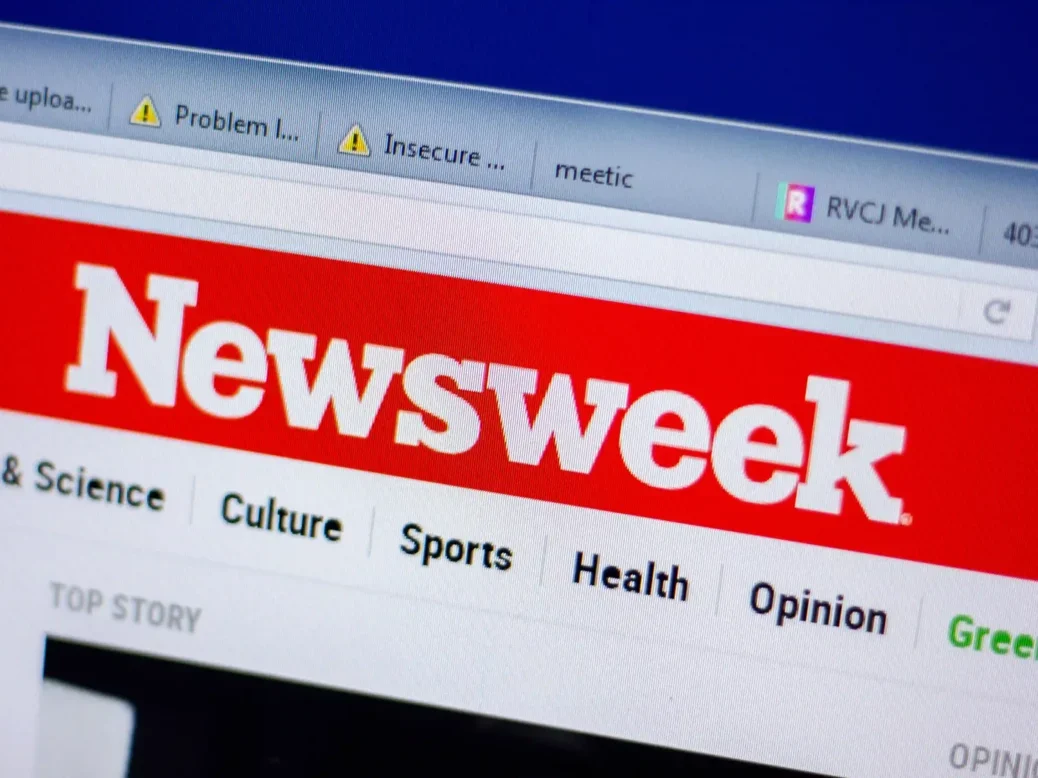
Fast-growing media brand Newseek has said it wants to use speed and fairness to help it stand out in the race for readers during the US election.
Newsweek SVP of audience development Josh Awtry told Press Gazette the newsbrand — the fastest-growing of the world’s top 50 English-language news sites — has to find a way to compete with news outlets “who have got infinitely more resources, fleets of data engineers… we’re up against people who have holograms”.
The magazine publisher’s plan, he said, was to “jump right to the key questions on people’s minds” beyond the individual race results and to be quicker than the competition.
He said the title had historically hired journalists with an emphasis on speed, has a roster of overnight journalists in the UK and that it has “prewrites” ready to go on covering a range of stories. (The brand has also reportedly been hiring AI-assisted live news reporters.)
The site typically publishes more than 300 stories per day with a strong emphasis on politics and current affairs. According to Press Gazette’s rankings Newsweek is the fastest-growing top-50 English language news website in the world.
Newsweek has tried to position itself above the partisan fray: the website features a “Daily Debate” panel high up that hopes to present two sides of an issue (or, as the election approached, pitches from both Donald Trump and Kamala Harris supporters).
It also rolled out a “Fairness Meter” a year ago that allows readers to vote on whether a given article is fair or whether it leans right or left.

Awtry said the introduction of the Fairness Meter came out of a desire for the audience “to keep us honest”.
Commenting that “it’s tough to out-journalism The New York Times”, he added: “What we’re hoping to do is differentiate from a lot of the other media in being more interactive and listening a lot to our community.”
Four tenths of Newsweek’s audience “self-identifies as politically middle of the road,” Awtry said, “and if you break it apart to those who lean left and those who lean right, it’s pretty close to even…
“We don’t want to lose that ability to speak to America. If you look at our state-by-state penetration, it mirrors the population trends. Rural, urban, suburban — pick your metric, and we look like America.”
The Fairness Meter has been applied to more than 25,000 stories since the feature launched, Awtry said. It is not placed on all articles, although most harder news stories receive it. In 90% of cases where it has been used the story has been labelled “fair” by a majority of voters, he said, and of the two million votes cast in total, 70% have been for the fair option. Approximately 14% of all those votes indicated a story “tilts right” and 16% that it “tilts left”.
Users do not have to register to cast a vote on the Fairness Meter, and Awtry said the plan next year is “to keep the core functionality wide open and free for everyone, but then to use it as a registration driver for that smaller percent of readers who do want some cooler things”, for example to let users track how they have voted over time.
Newsweek.com is free to read, although it offers a paid digital subscription that removes ads and provides access to exclusive podcasts and newsletters.
“We don’t want to create any friction in the ability to register that vote,” Awtry said. “We don’t want you to have to sign up or create an account. We want that to be something that we use to take the pulse. But we’re looking for features that power users might want.”
Email pged@pressgazette.co.uk to point out mistakes, provide story tips or send in a letter for publication on our "Letters Page" blog
